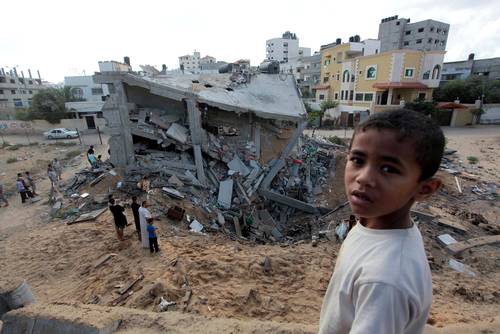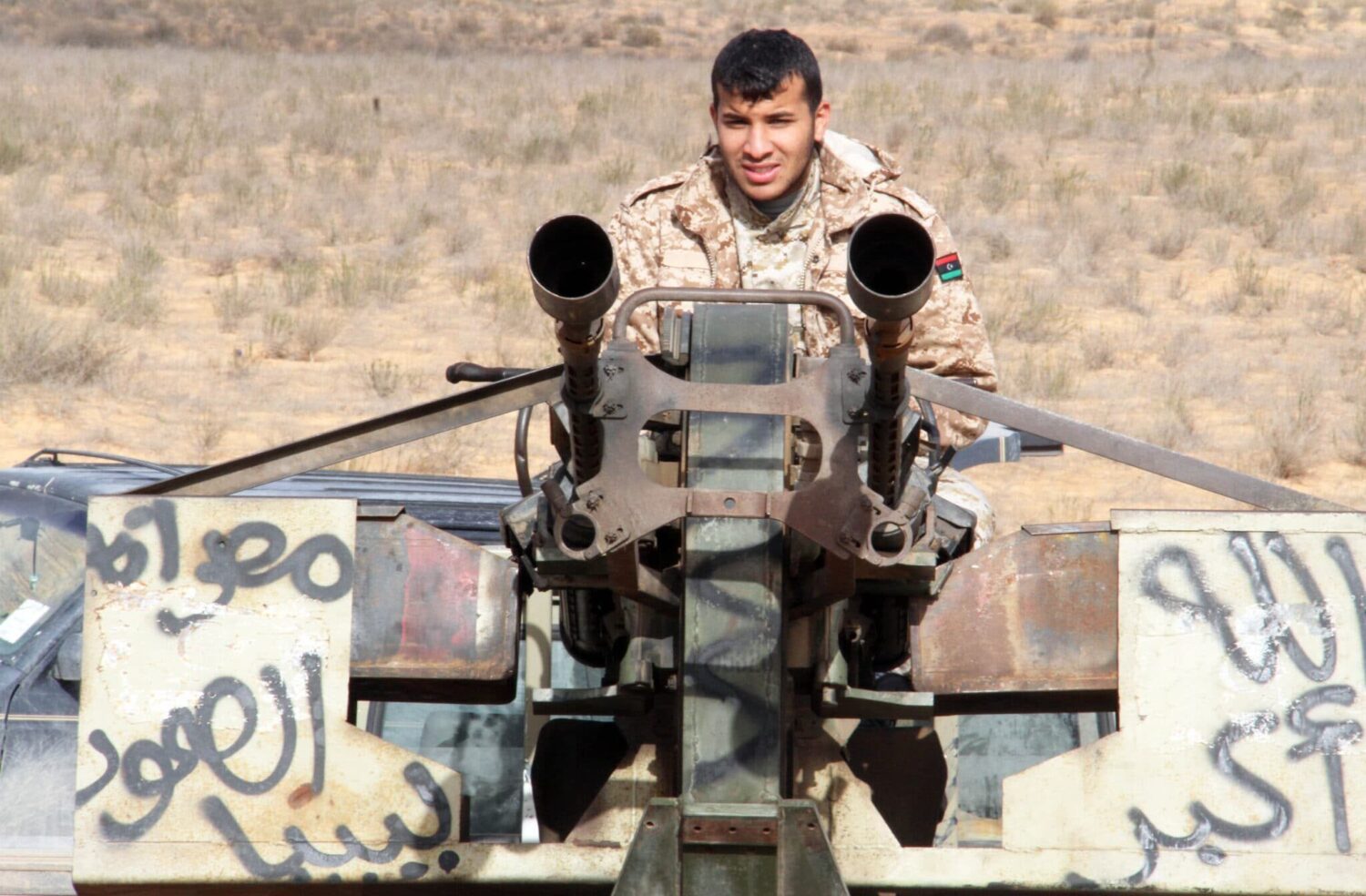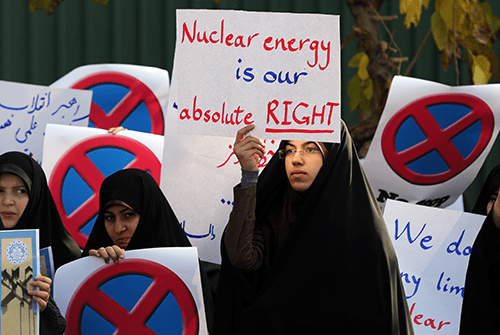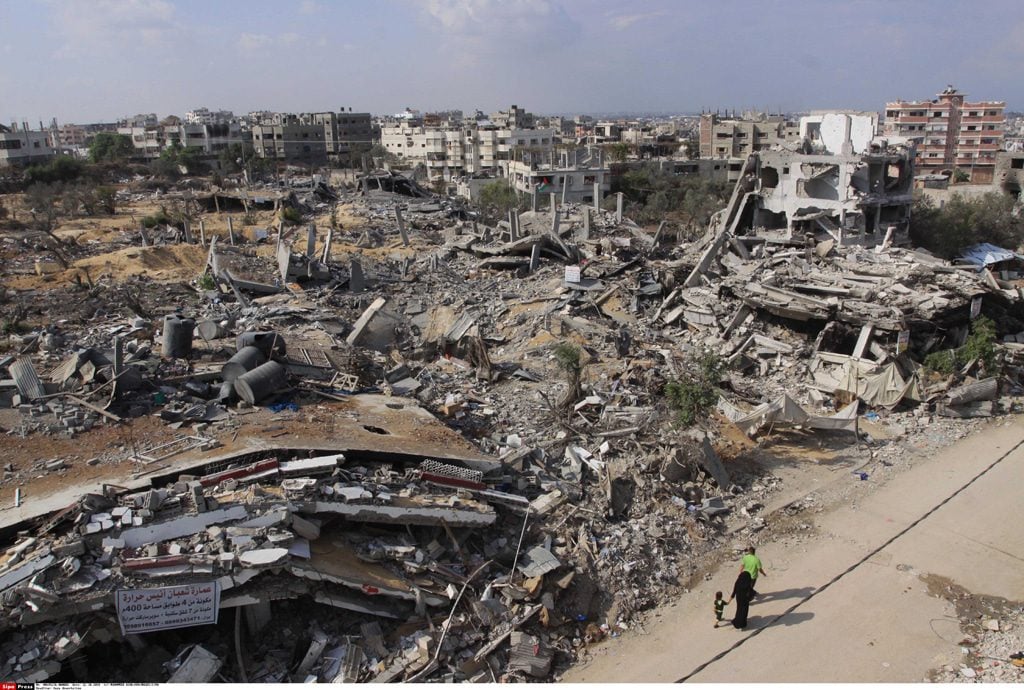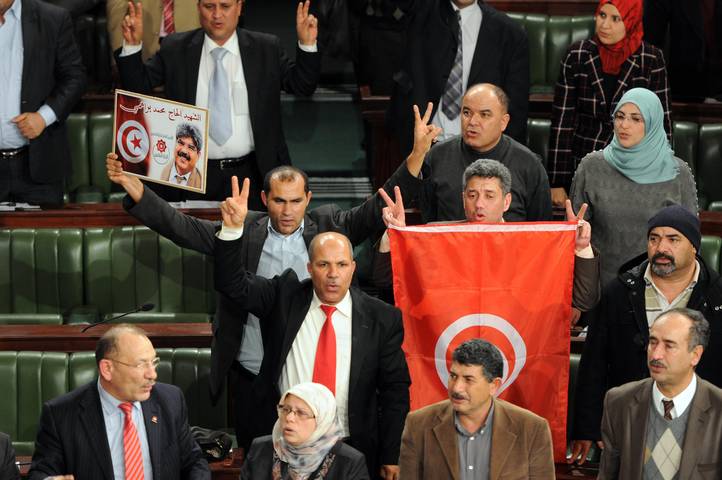![]()

Below is an overview of in-depth Middle East and North Africa reports published by the International Crisis Group, an independent, non-profit, non-governmental organisation committed to preventing and resolving deadly conflict.
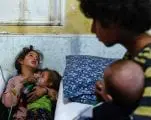
After an apparent chemical weapons attack on a rebel-held Damascus suburb Saturday, the United States and its allies are considering retaliatory strikes against the Syrian government. In this Q&A, Crisis Group’s Sam Heller lays out the Douma attack’s impact and the repercussions of a possible new U.S.-led intervention. Read more.
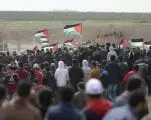
Protests in Gaza on Friday 30 March, at which Israeli forces killed more than a dozen Palestinians, were the largest of their kind in several years and are likely to grow over the coming weeks. In this Q&A, Nathan Thrall, Director of Crisis Group’s Arab-Israeli Project, says the series of planned marches reflect the Palestinians’ determination to take matters into their own hands after losing faith in outside mediation. Read more.

Divergent views of Iran’s ambitions are driving proxy wars from Syria to Yemen. To stop disastrous direct confrontation, it is crucial to close the perception gap and that Iran and its adversaries take mutual steps toward de-escalating tensions. Read more.
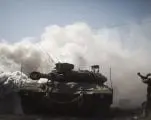
Facts on the ground in Syria are defining the contours of the country’s political future and also the geography of a looming clash between Israel, Hizbollah and other Iran-allied militias. Russia should broker understandings to prevent a new front from opening. Read more.
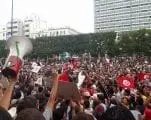
The seventh anniversary of the 14 January 2011 Tunisian uprising is overshadowed by dangers of political polarisation and an illusory nostalgia for strong, centralised government. To save the sole successful Arab transition, the governing coalition should enact promised reforms, create a Constitutional court and hold long-delayed local elections. Read more.

The 2015 Iran nuclear accord is working, but is at risk from longstanding U.S.-Iran rivalry, Trump administration policies and Tehran’s upsurge of activism in the Middle East. The deal’s other signatories should encourage the U.S. not to withdraw and consider ways to sustain the deal, regardless of U.S. actions and as long as Iran remains committed to it. Read more.

The Turkish attack killed twenty members of the People’s Protection Units (YPG), the Kurdish military formation controlling much of northern Syria. To Abd al-Menaam and many Syrian Kurds, this is a real shock: despite deepening relations between the YPG and U.S. forces on the ground, the latter had neither deterred the Turkish strikes nor provided sufficient warning for the YPG to evacuate the buildings targeted.Read more.

Six years into Syria’s civil war, the military and political map in the north has been dramatically redrawn. The most dynamic local actors, the political affiliates of the Iraq-based Kurdistan Workers’ Party (PKK) in Turkey – the People’s Protection Units (YPG) and Democratic Union Party (PYD) – control major portions of the Syria-Turkey border, have announced a federal region and established local rule. Read more

In Raqqa the U.S.-led coalition to defeat the Islamic State (ISIS) faces its toughest test to date in Syria. The primary challenge in capturing the majority-Arab city on the Euphrates river lies not in the fight itself, though that may well prove costly.Read more…

Thriving on conflict, sectarianism, and local opportunism, al-Qaeda’s affiliates are stronger than ever in Yemen. To shrink their growing base will require better governance in vulnerable areas, not treating all Sunni Islamists as one enemy, and above all ending Yemen’s civil war. Read more.

President Obama has a final chance to shape his legacy as a peacemaker by putting out parameters for resolving the Israeli-Palestinian conflict, ideally in a concise, balanced UN Security Council resolution. It would be the Council’s first engagement on all the conflict’s core issues and expand the international role, one of many needed peace process adjustments. Enshrining principles, if not via the Council then at least by the Quartet or in another multilateral framework is but one of several needed changes to Israeli-Palestinian negotiations. Read more.

As waves of protests have hit the hydrocarbon-rich Algerian south since 2013, authorities maintained a tenuous peace through handouts, repression and policing. To calm tensions, the state needs to clarify policies, communicate with local protestors and address underlying issues of governance. Read more.

The UN-brokered peace process in Libya has stalled, leaving unresolved pressing issues like worsening living conditions, control of oil facilities, people-smuggling, and the struggle against jihadist groups. New negotiations are needed to engage key actors who have been excluded so far. Read more.

When Hizbollah – the Lebanese “Party of God” – threw its fighters into Syria in 2013, it sought primarily to save itself. Had the Assad regime collapsed or been defeated by U.S.-backed regional powers, it could have faced a hostile Sunni successor in Damascus and lost its essential arms channel from Iran. Today, its core objective of preserving the regime has been met, but there is no end in sight to the war. If Iran and Hizbollah continue to provide unconditional military support to the regime without a realistic exit strategy, they will be dragged deeper into what can only become a quagmire, even as their armed strength grows in the wider region. Read more.
Iraqi youth who came of age during the post-2003 turmoil share a sense of hopelessness and disempowerment. Across the political spectrum, they feel trapped: join a protest movement or militia, or emigrate. Even amid the severe challenges the government and its partners face, this generation must be prioritised, lest Iraq’s most important resource become a major security threat. Read More
Political tensions between supporters and opponents of Tunisia’s transitional justice process and of its application in the economic realm are delaying the implement- tation of policies necessary to stimulate the economy and tackle corruption. The process’ supporters view it as essential to keeping the revolutionary flame alive, reestab- lishing citizens’ trust in state institutions and promoting the rule of law, equitable development and reconciliation. Read More
Weakened by deepening inter- and intra-communal rifts, the Lebanese state has gradually abandoned its primary role in governance and as manager of representative politics and relies increasingly on security measures to maintain stability and the political status quo. The remote border town of Arsal in the north east is emblematic of this security-centric method of tackling unrest. Read More
The Islamic State (IS), al-Qaeda-linked groups, Boko Haram and other extremist movements are protagonists in today’s deadliest crises, complicating efforts to end them. They have exploited wars, state collapse and geopolitical upheaval in the Middle East, gained new footholds in Africa and pose an evolving threat elsewhere. Reversing their gains requires avoiding the mistakes that enabled their rise. Read More
With the nuclear accord between Tehran and world powers in force, a chief question is what it means for Iran. The clash between competing visions of the country’s future has heightened since the deal. Many, there and abroad, believe it could rebalance domestic politics. It not only has boosted the profile of those who promoted it, but, more fundamentally, it has opened space for new debates in a domestic sphere that was dominated by the nuclear issue for more than a decade. Read More.
Nearly a year on, there is no end in sight to Yemen’s war. The conflict pits Ansar Allah (Huthi) rebels and military units allied with ex-President Ali Abdullah Saleh against a diverse mix of opponents, including what remains of the government of President Abed-Rabbo Mansour Hadi, backed by a Saudi-led coalition supported by the U.S., the UK and France. Ending the war requires negotiations leading to an interim settlement that must include security arrangements providing for militia withdrawal from cities, a return to the political process pursuant to UN Security Council Resolution 2216 and agreement on a transitional leadership. Read More
Algeria is emerging as an indispensable broker of stability in North Africa and the Sahel. Where insecurity, foreign meddling and polarisation are on the rise across the region, it has at key moments promoted dialogue and state-building as the best means for lifting neighbours out of crisis, thus to safeguard its own long-term security. Read More
September, 2015 – The Syrian war rages on, its devastating civilian toll rising with no viable political solution in sight. Diplomacy is stymied by the warring parties’ uncompromising positions, reinforced by political deadlock between their external backers. The U.S. is best placed to transform the status quo. A significant but realistic policy shift focused on dissuading, deterring or otherwise preventing the regime from conducting aerial attacks within opposition-held areas could improve the odds of a political settlement.This would be important, because today they are virtually nil. Read More.
August, 2015 – Both Israel and Hamas recognise that another war is only a matter of time if Gaza’s fundamental problems are not addressed: the economy is a shambles; the acting government lacks the ability to collect or otherwise obtain the revenue necessary to pay salaries and provide services; and most residents cannot access the outside world. Read More

With a dysfunctional internal security apparatus, Tunisia’s response to increasing, ever more devastating jihadi attacks has been ad hoc. The attacks in Tunis and Sousse, in March and June 2015, as well as frequent assaults against the police, the National Guard and the army over the past two years, especially in areas along the country’s borders, are evidence of jihadi groups’ significant advances.Read More
Lebanon survives against all odds in a troubled environment thanks to a remarkable immune system, but that resilience has become an excuse for a dysfunctionality and laissez-faire attitude by its political class that could ultimately prove the country’s undoing.Read More
While Jewish Temple activism was crucial in sparking the last round of unrest, the religious salience of and political contestation around Jerusalem’s Holy Esplanade, especially among Jews but also Muslims, has been increasing for two decades. This has eroded the status quo arrangement that has mostly kept the peace since Israel captured East Jerusalem in 1967. Any further slippage must be prevented and the status quo braced…Read More
Loosely organised in an ad hoc coalition, Western countries rushed military aid to Iraqi Kurds in the face of a lightning assault by the Islamic State (IS) in June 2014. They failed, however, to develop a strategy for dealing with the consequences of arming non-state actors in Iraq, a country whose unity they profess to support…..Read More
Yemen is at war. The country is now divided between the Huthi movement, which controls the north and is rapidly advancing south, and the anti-Huthi coalition backed by Western and Gulf Cooperation Council (GCC) allies that President Abdo Robo Mansour Hadi is cobbling together…. Read More
Libya’s deteriorating internal conflict may be nearing a dramatic turning point. Over six months of fighting between two parliaments, their respective governments and allied militias have led to the brink of all-out war…. Read More
The failure of Iran and the P5+1 (the five permanent members of the UN Security Council plus Germany, also known as EU3+3) to reach a comprehensive nuclear agreement by their self-imposed 24 November deadline was no surprise. The process had been deadlocked for months over two key issues: the size of Iran’s enrichment program and sanctions relief…. Read More
More than seven weeks after the most devastating war yet waged in Gaza, its underlying causes remain unresolved. Hamas did not achieve an end to Gaza’s closure; Israel did not attain the demilitarisation of the Strip or Hamas…. Read More
Since the December-January 2010-2011 uprising, Tunisia has successfully overcome successive political crises, yet seems less able to absorb the impact of major jihadi attacks. Despite the success of a national dialogue that significantly reduced tensions and helped begin 2014 on a note of optimism, leading to a significant reduction in political tensions, concerns are growing again…. Read More










